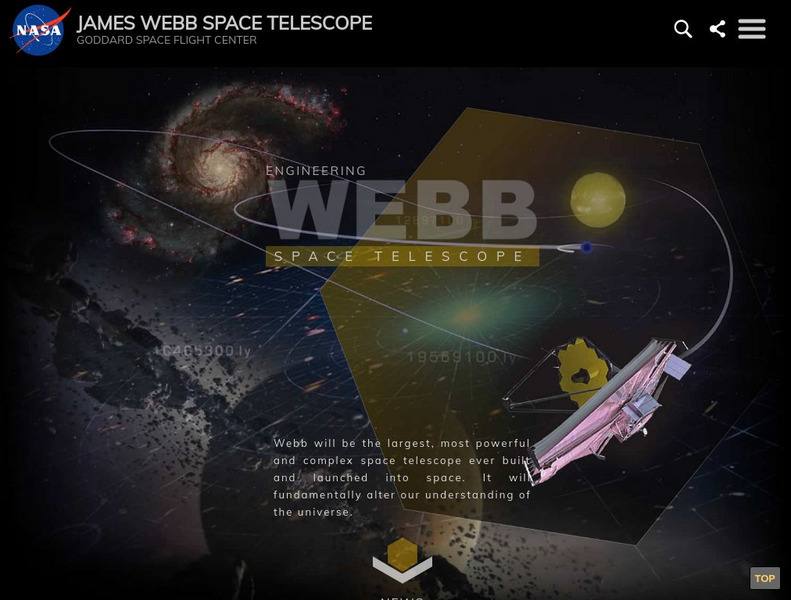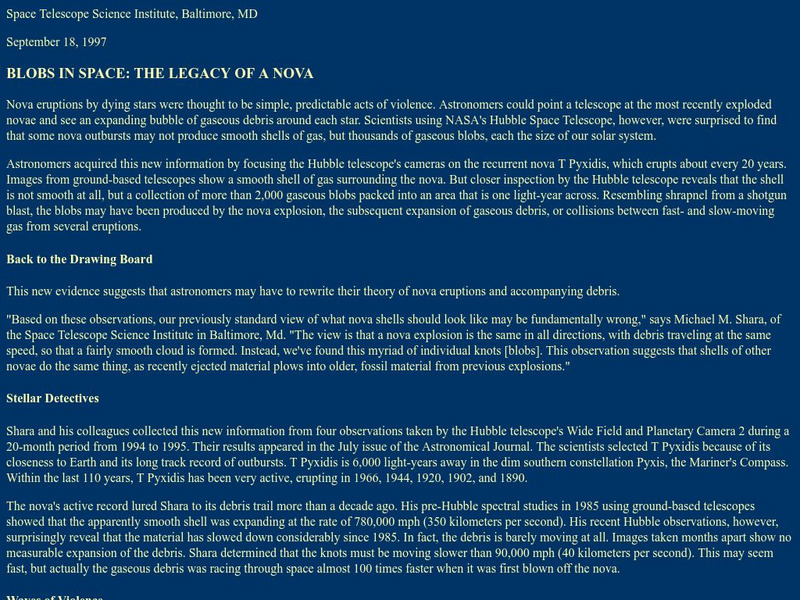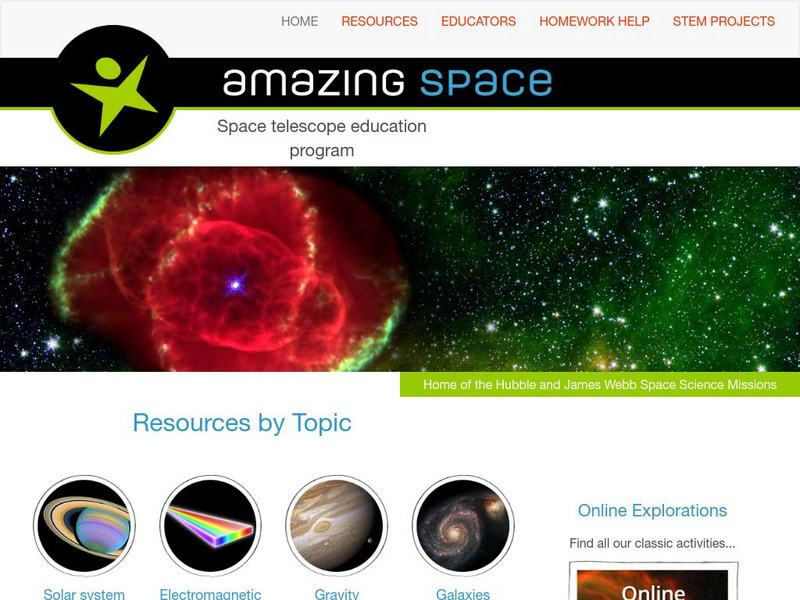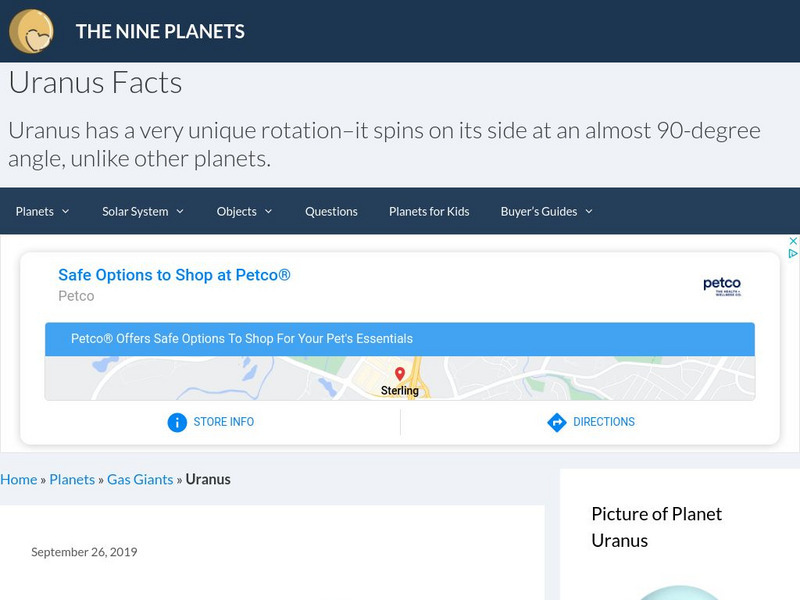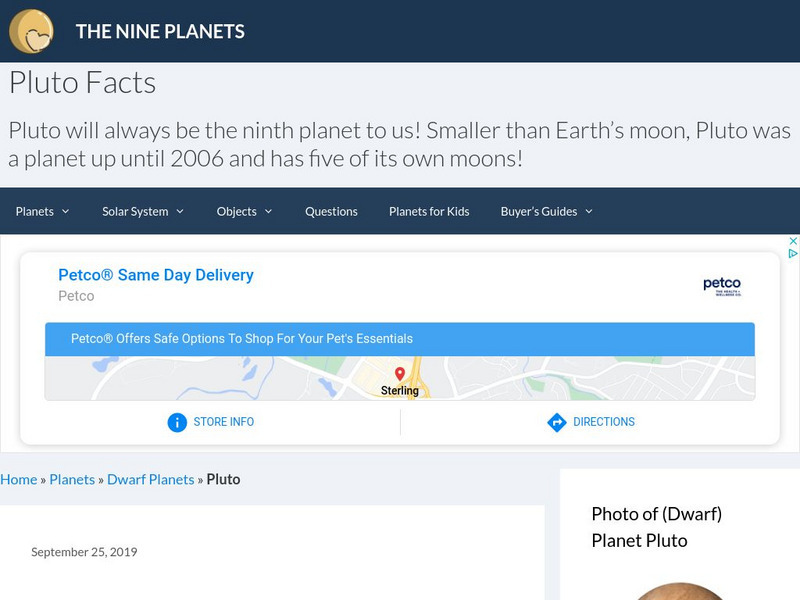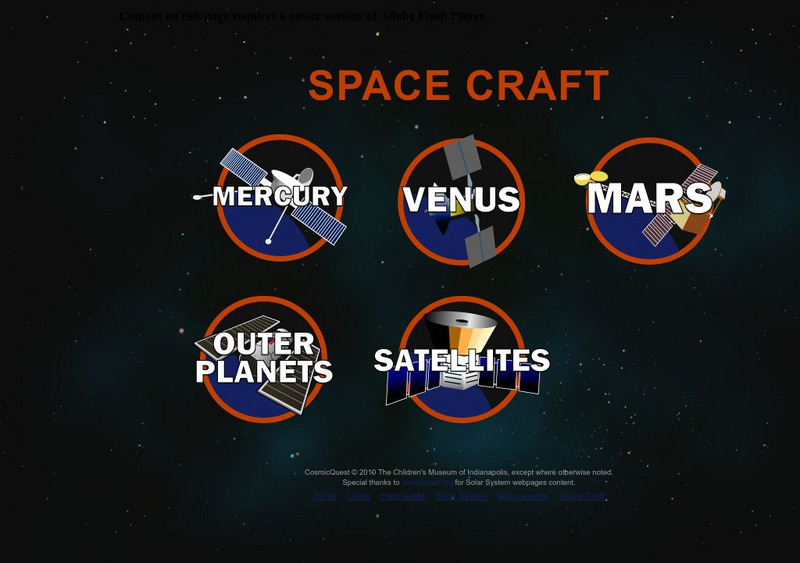NASA
Nasa Star Child: The Hubble Space Telescope (Level 1)
This article for younger students introduces the Hubble Space Telescope and what it is doing in outer space.
NASA
Nasa Star Child: The Space Shuttle (Level 2)
This site has a description of the Space Shuttle and its uses. Included are vocabulary words linked to a glossary of terms, graphics and a printable version.
NASA
Nasa Star Child: The Space Shuttle (Level 1)
This site provides a short description of the space shuttle and what it is used for, with diagrams and one quiz question.
Other
University of Leicester: Spiral Galaxies
Provides a general overview of spiral galaxies, including descriptions of the different classes of spiral galaxy.
NASA
Nasa: James Webb Space Telescope
NASA's web site about the James Webb Space Telescope, which will replace the Hubble telescope and is expected to observe the farthest reaches of the universe.
University of California
U.c. Berkeley: Spectra From Space
View the entire spectrum of electromagnetic radiation and get information on telescopes especially designed to view different wavelengths of the spectrum.
Space Telescope Science Institute
Amazing Space: Mission Mastermind
This site is provided for by Amazing Science. "NASA needs your help in planning a Hubble Servicing Mission. Join the team!"
Space Telescope Science Institute
Space Telescope Science Institute
The homepage for the Space Telescope Science Institute provides a variety of resources on the James Webb Space Telescope and Hubble Telescope. Also provided is information on the institute itself, a data archive, and a wide range of...
PBS
Nova: Doomsday Asteroid Hale Bopp & Hyakutake
NOVA provides a report on comet Hale-Bopp and comet Hyakutake. Content includes discovery and observational information.
Space Telescope Science Institute
Amazing Space: Hubble Deep Field Academy
At this site, students can become a Steller Statistician, Cosmic Classifier, Galactic Guide or a Universal Graduate by attending the Hubble Deep Field Academy--and entering information in their Hubble Academy Log (HAL), which is assessed...
Other
Astronet: Blobs in Space: The Legacy of a Nova
The expansion and explosion of a star is described at it goes through its nova phase. Current theories are discussed.
NASA
Nasa: Final Shuttle Mission to the Hubble Telescope
Discover here the space Servicing Mission 4, or the mission to repair and upgrade the Hubble Space Telescope. Meet the team and learn all about the servicing project.
Orpheus Books
Q Files: Technology: Space Transport
The story of space exploration is told from the first successful rocket built in 1926 to space probes and the International Space Station.
NASA
Nasa: Huge Springtime Storms Hit the Planet Uranus
Describes in detail the devastating storms that occur on Uranus.Also includes an .mpeg movie showing the rings of Uranus up close. (Mar. 29, 1999)
Famous Scientists
Famous Scientists: Edwin Hubble
Learn about Edwin Hubble, an American astronomer who is known for playing a vital role in the development of extragalactic astronomy.
Space Telescope Science Institute
Space Telescope Science Institute: Amazing Space
Amazing Space promotes the "science and majestic beauty of the universe for use in the classroom." Here you can find learning activities, lesson plans, teaching guides, and helpful tips for students eager to learn about space and space...
Space Telescope Science Institute
Hubble Site: Hubble Monitors Weather
This site is from Hubblesite which is provided by the National Aeronautics and Space Administration. "What's the weather for Mars and Venus? The Hubble telescope has given astronomers a peak." Site provides images, video as well as...
Read Works
Read Works: A Final Journey
[Free Registration/Login Required] An informational text about improvements made to the Hubble telescope. A question sheet is available to help students build skills in reading comprehension.
Nine Planets
The Nine Planets: Uranus
An excellent report on the planet Uranus. The site includes detailed information about the planet as well as links to information about Uranus moons, unmanned probes sent to explore Uranus, and an extensive set of images of the planet.
Nine Planets
The Nine Planets: Pluto
This site contains copious information about Pluto. The site contains descriptive and statistical information, as well as a detailed article about the search for trans-Plutonian planets and the "Nemesis" hypothesis.
Johns Hopkins University
New Horizons Website
This site from the Solar System Exploration section of NASA provides an overview of the space mission to Pluto, Charon, and the fringes of our Solar System. It describes the Kuiper Belt, and the objects involved with it, provided links...
NASA
Nasa Star Child: Star Child
StarChild from NASA defines and describes the Solar System in a simple and easy-to-understand manner. The website is broken down into two versions for the student, grade school and junior high.
Other
University of Leicester: Elliptical Galaxies
Provides a general overview of elliptical galaxies, including a look at what defines an elliptical galaxy, what determines its shape, and it's physical nature.
Children's Museum
Field Guide to the Universe: Space Craft
Pictures and descriptions of the robot spacecraft that have explored the planets and outer space since the 1960s.






